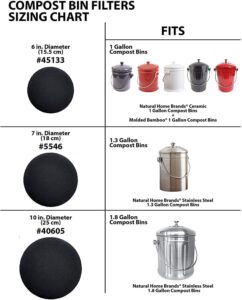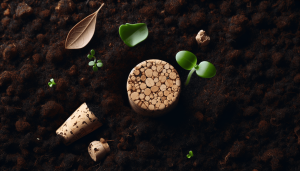In “How Do I Make Composting A Part Of My Daily Routine?” we explore simple and effective ways to integrate composting into our everyday lives. By making small, manageable changes, we can turn our kitchen scraps and yard waste into rich, fertile compost, benefiting not only our gardens but also the environment. From setting up a designated compost bin to understanding what can and cannot be composted, we’ll guide you through each step, ensuring that composting becomes a seamless part of our daily habits. Let’s embrace this eco-friendly practice together and make a positive impact, one compost heap at a time! How do we make composting a part of our daily routine?
That’s a question many of us find ourselves pondering as we strive to live more sustainably. The idea of composting is simple enough in theory, but integrating it into our daily lives can sometimes feel daunting. There’s the uncertainty of how to start, what can and cannot be composted, and how to manage it without overwhelming ourselves. Let’s demystify the process and explore practical ways to make composting a seamless part of our everyday activities.
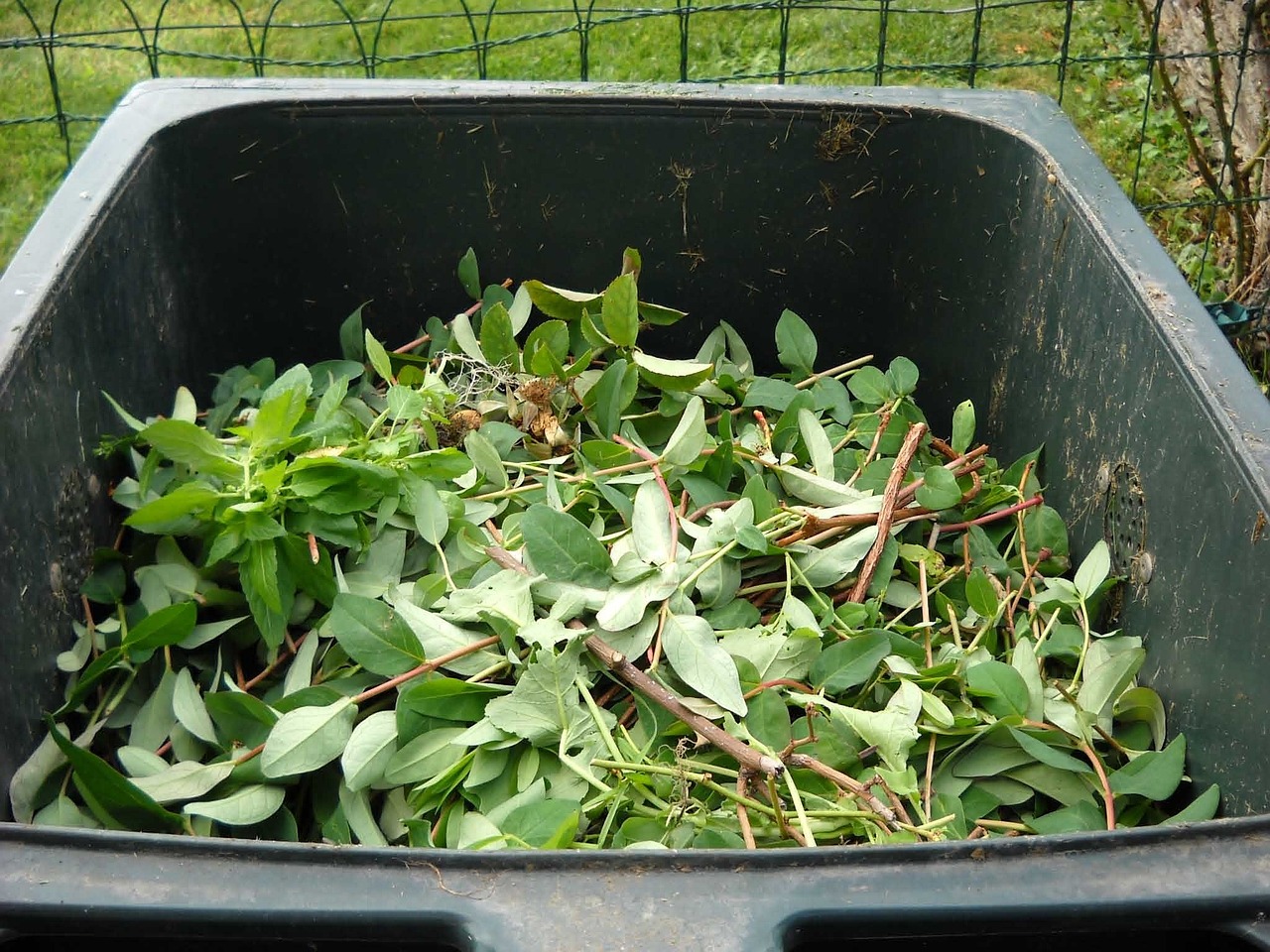
Why Composting Matters
Understanding why we should compost can be a great motivator. Composting is an eco-friendly way to recycle organic waste, reduce landfill use, and enhance soil health. By breaking down natural waste products, we can create nutrient-rich compost that benefits gardens and plant life.
Environmental Impact
Composting significantly reduces the amount of waste that ends up in landfills, which in turn decreases methane emissions – a potent greenhouse gas. It’s an effective way to minimize our carbon footprint.
Soil Health
Compost enriches the soil, helping it retain moisture and suppress plant diseases. It’s nature’s way of recycling nutrients and improving soil health without the need for chemical fertilizers.
Getting Started with Composting
The first step towards making composting a part of our daily routine is to get started. Like any new habit, it requires a bit of planning and consistency.
Choosing a Composting Method
There are several methods of composting, and the best one for us depends on our living situation and preferences.
| Method | Description | Best For |
|---|---|---|
| Backyard Composting | Composting in a designated outdoor bin or pile. | Homeowners with garden space. |
| Vermicomposting | Using worms to break down organic material indoors. | Apartment dwellers. |
| Tumbler Composting | Using a rotating bin to compost more quickly. | Urban homes or those with less space. |
| Bokashi Composting | An indoor method using fermentation process. | Small spaces or kitchen composting. |
Setting Up the Compost Bin
Regardless of the method we choose, setting up a compost bin correctly is key to successful composting.
- Location: Place the bin in a convenient location. For backyard composting, find a shady, well-drained spot. For indoor composting, ensure it’s in a kitchen or pantry area where it’s easily accessible.
- Ventilation: Ensure there’s adequate airflow to prevent unpleasant odors.
- Drainage: Moisture control is crucial. The bin should have good drainage to manage the moisture levels effectively.
What to Compost
Knowing what we can and cannot compost is vital to maintaining a healthy compost pile.
| Compostable Items | Non-Compostable Items |
|---|---|
| Fruit and vegetable scraps | Meat and dairy products |
| Coffee grounds and filters | Fats, oils, and grease |
| Eggshells | Bones |
| Shredded paper and cardboard | Diseased plants |
| Yard waste (grass clippings, leaves) | Pet feces and cat litter |
| Tea bags | Treated wood products |
Balancing Greens and Browns
Successful composting requires a balance of “greens” (nitrogen-rich materials) and “browns” (carbon-rich materials).
- Greens: Include vegetable scraps, coffee grounds, and garden waste.
- Browns: Include dried leaves, straw, and cardboard.
A good rule of thumb is to maintain a ratio of roughly 50% greens and 50% browns to keep the compost pile healthy and active.
Making Composting Part of Our Daily Routine
Incorporating composting into our everyday activities is all about routine and accessibility. Let’s discuss some practical tips to make composting a seamless part of our lives.
Create a Composting Station in the Kitchen
Setting up a composting station in our kitchen is perhaps the easiest way to ensure we compost regularly.
Step-by-Step Setup
- Countertop Bin: Keep a small, lidded bin on the counter or under the sink for collecting daily food scraps.
- Liners: Use biodegradable liners to make cleaning easier.
- Signs: Display a list of compostable items to remind everyone in the household what belongs in the compost bin.
Develop a Daily Routine
Daily habits will make composting second nature. Here’s a simple daily routine:
- Prep while Cooking: Toss vegetable peelings and coffee grounds into the countertop bin as we prep meals.
- End-of-Day Dump: Empty the kitchen bin into the main compost bin or pile outside at the end of each day.
- Weekly Turn: If using a backyard or tumbler compost bin, turn the compost weekly to aerate it and speed up decomposition.
Involve the Whole Family
Composting can be a fun, educational activity for the whole family. Get everyone involved:
- Children: Assign tasks like collecting scraps or turning the compost.
- Partners: Make it a team effort to maintain the compost system.
- Friends and Neighbors: Consider community composting if space is limited.
Troubleshooting Common Composting Issues
Even with the best intentions, we may encounter some challenges while composting. Here are solutions to some common issues.
Odors
Unpleasant smells can occur, but they’re usually a sign that something needs adjusting.
- Too Wet: Add more browns to balance the moisture.
- Not Aerated: Turn the compost more frequently to enhance airflow.
Pests
Pests like rodents or flies can be deterred with a few strategies.
- Rodents: Avoid composting meat or dairy. Use a closed bin or wire mesh.
- Flies: Cover fresh food scraps with a layer of browns.
Slow Decomposition
If the compost is decomposing slowly, consider the following:
- Balance: Ensure the ratio of greens and browns is correct.
- Size: Chop large items into smaller pieces to speed up the process.
- Moisture: Ensure the pile is moist, but not soggy.
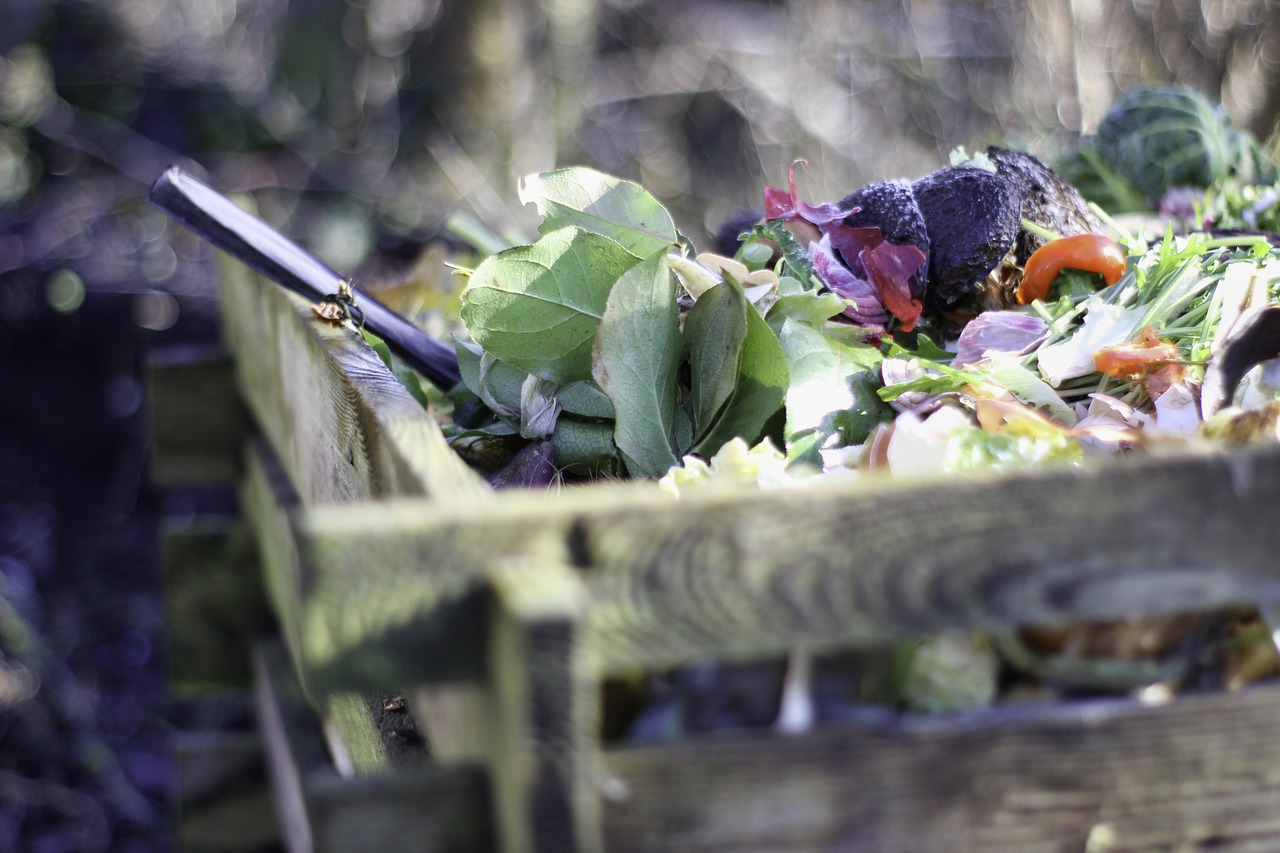
Benefits Beyond the Bin
Composting isn’t just about reducing waste; it offers numerous benefits that enhance our daily lives in surprising ways.
Gardening and Landscaping
Using compost in our gardens provides nutrients to plants, improves soil structure, and retains moisture. It’s an excellent way to boost the health and yield of our vegetable garden or flower beds.
Community Benefits
Composting helps reduce the community’s waste stream and can be an educational tool. Schools and community gardens benefit greatly from local composting programs, fostering environmental awareness and involvement.
Personal Satisfaction
There’s immense satisfaction in knowing we are contributing to a healthier planet. Composting connects us to the natural cycle of growth and decay, making us more mindful of our consumption and waste.
Advanced Composting Techniques
For those of us who want to take our composting to the next level, there are advanced techniques and methods worth exploring.
Hot Composting
Hot composting involves maintaining a compost pile at a high temperature (130-160°F) to decompose materials more quickly. This method requires regular turning and monitoring of temperature and moisture levels, but it can produce compost in a fraction of the time.
Compost Tea
Compost tea is a liquid extract made from compost that’s used as a powerful organic fertilizer. It can be brewed in a bucket with water and aerated for 24-48 hours. The resulting solution can be used to water plants or as a foliar spray.
Bokashi Composting
This anaerobic process uses microorganisms to break down organic matter in a sealed container. It’s an excellent method for composting all kitchen scraps, including meat and dairy, which aren’t suitable for traditional composting.
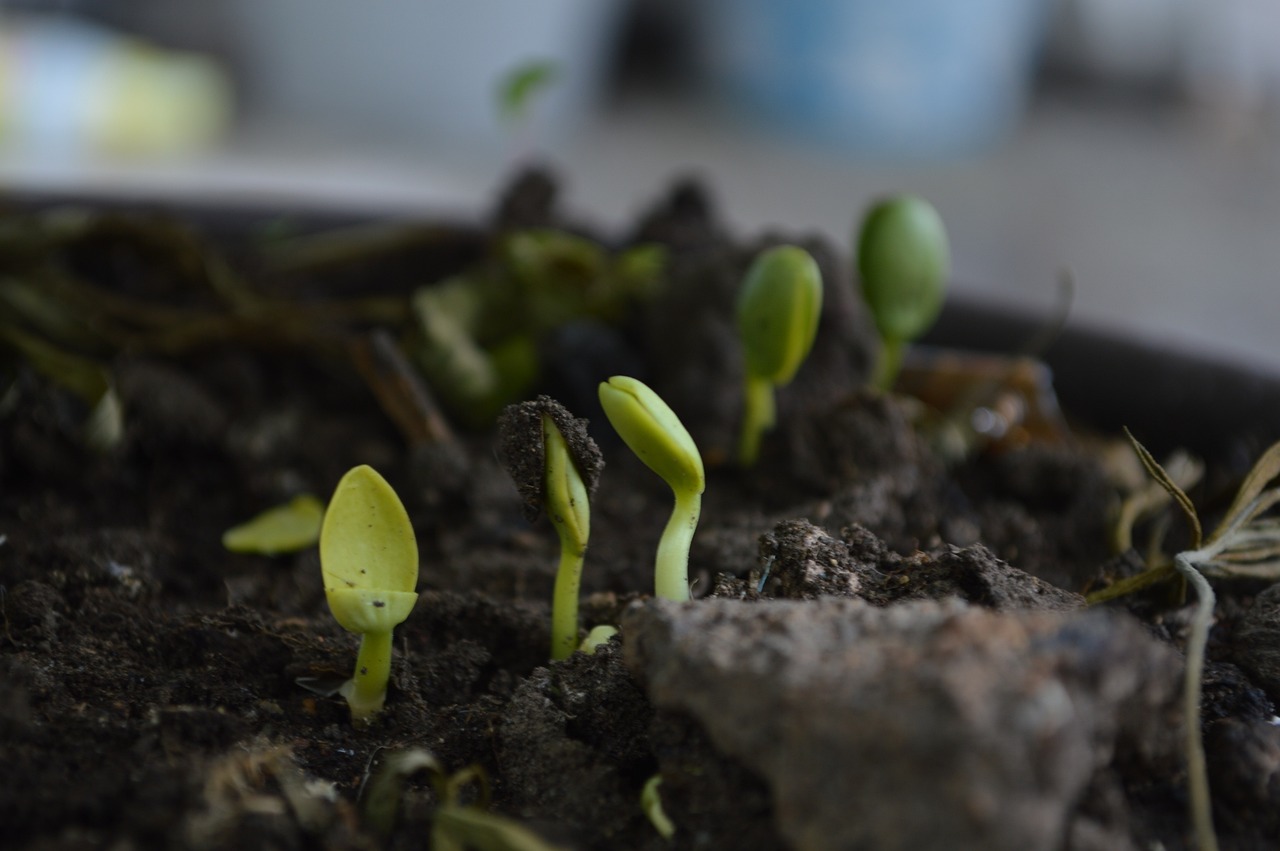
Connecting with the Composting Community
Engaging with other composters can provide tips, support, and inspiration. Here are ways to connect:
Local Workshops and Classes
Many communities offer composting workshops. These are great for learning new techniques and troubleshooting problems.
Online Forums and Social Media
Platforms like Reddit, Facebook, and dedicated composting websites have forums where we can ask questions, share experiences, and get advice.
Composting Groups and Clubs
Joining a local garden or composting club can provide hands-on experience and foster friendships with like-minded individuals.
Overcoming Barriers to Composting
Despite our best efforts, some challenges may hinder our composting journey. Let’s address and overcome these barriers.
Space Constraints
Even with limited space, options like vermicomposting or indoor bins are viable solutions. Compact composting units fit easily in small apartments, and community composting programs offer alternatives.
Time Management
We might worry that composting takes too much time. Simplifying the process with easy-access bins and enlisting the help of family members can distribute the workload. Remember, small daily efforts add up.
Misconceptions and Myths
Common misconceptions like “composting is smelly” or “requires a lot of effort” can discourage us. However, following best practices can mitigate these issues. Education and awareness go a long way in transforming our attitudes toward composting.
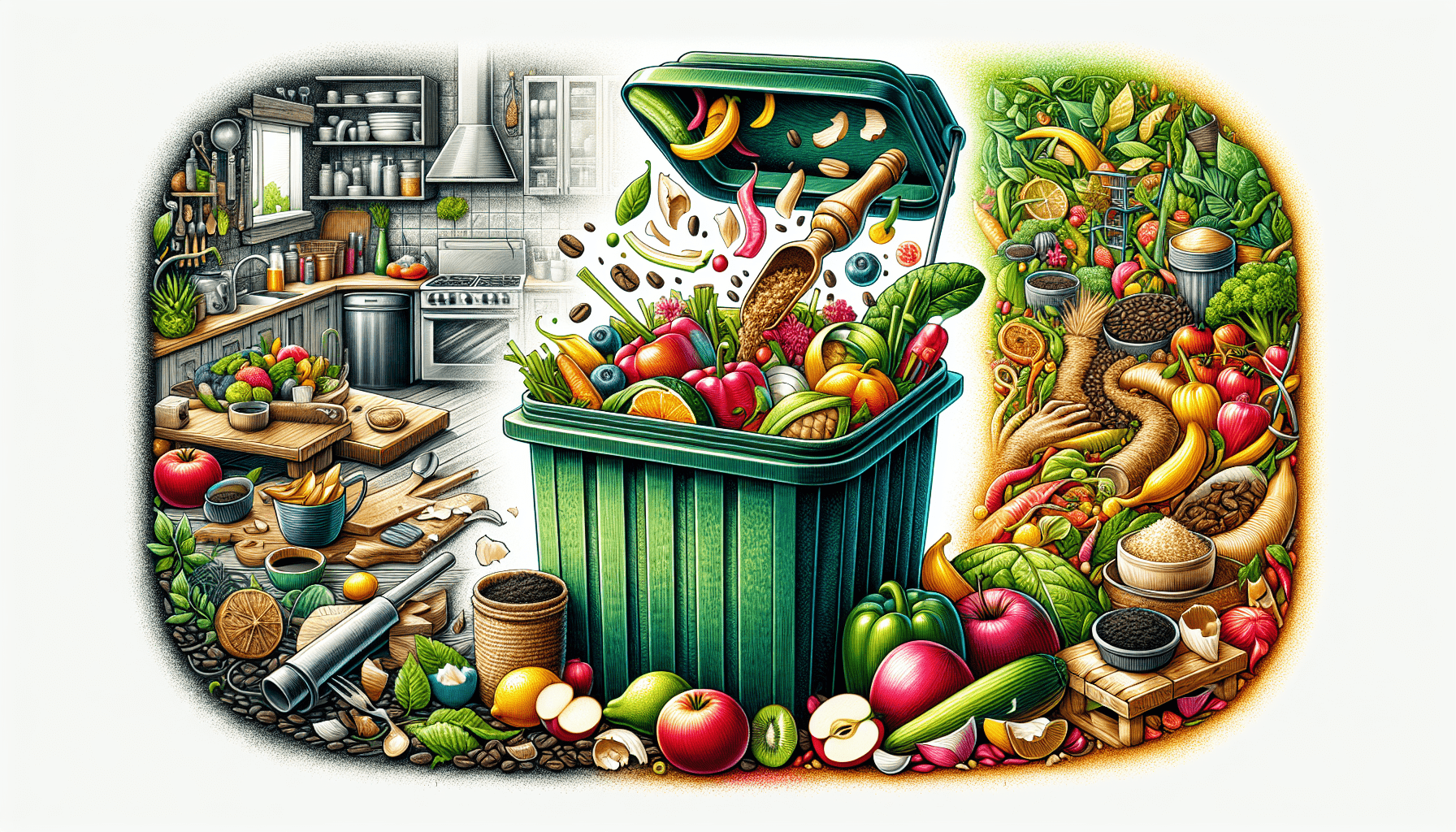
Conclusion
Making composting a part of our daily routine is a fulfilling and impactful practice that benefits the environment, our gardens, and our communities. By understanding the basics, setting up convenient systems, involving family and friends, and staying connected with fellow composters, we can integrate this sustainable habit into our everyday lives with ease.
Embracing composting is more than just a waste management strategy; it’s a step towards a more sustainable and mindful way of living. Let’s commit to making composting a natural, enjoyable part of our daily routine and inspire others to do the same. Happy composting!

